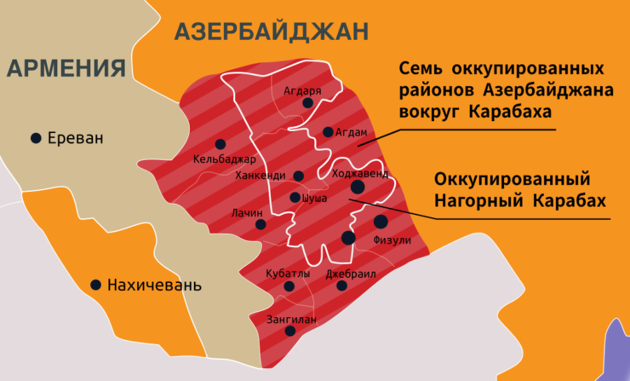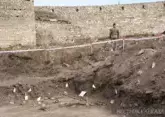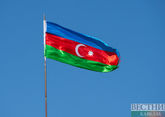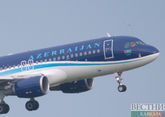In an exclusive interview, a high official of Azerbaijan pointed at mafia-type relations between the unrecognized authorities of Nagorno-Karabakh and the government in Armenia as an obstacle for solving the long-lasting conflict. Hikmat Hajiev, head of the foreign affairs department of Azerbaijan’s presidential administration, was asked on Wednesday (13 May) to comment on recent developments in Nagorno-Karabakh, following presidential and parliamentary elections held in the breakaway region despite international criticism and the coronavirus pandemic. Euractiv reports in its article Azeri official points at ‘mafia’ as obstacle to solving Nagorno-Karabakh conflict that Hajiev regretted “the lack of constructive actions” by Yerevan to move forward the negotiations. “Armenia is backtracking on the negotiations process”, he said, adding that with its “war-mongering rhetoric” it “undermines the work of the co-chair countries” of the OSCE Minsk Group.
Nagorno-Karabakh is a region within Azerbaijan that was seized by Armenian-backed separatists who declared independence during a 1988-1994 conflict that killed at least 30,000 people and displaced hundreds of thousands.
Russia, the United States, and France are the co-chairs of the Minsk Group of the Organisation for Security and Cooperation in Europe (OSCE), which acts as a mediator in resolving the crisis. The group has been struggling for years to mediate a solution to the situation.
Hajiev said the only way was to resolve the conflict step-by-step, starting with the liberation of the occupied territories of Azerbaijan, the withdrawal of Armenia’s troops and the return all displaced people.
He said the recent “so-called elections once again demonstrated that the illegal regime established in the occupied territories of Azerbaijan is nothing but a criminal entity”, a part of the “mafia-sort fights among the political leadership in Armenia”.
Asked to elaborate, he said the purpose of the recent election was to strengthen Arayik Harutyunyan, the president-elect of the unrecognised territory of Nagorno-Karabakh, who according to him was installed by the former Armenian President Serzh Sargsyan.
Hajiev also said it was a “well-established tradition” to exploit silver mines in Nagorno-Karabakh and illegally export the metal, while the money received was used to finance what he said were obscure activities of the political leadership of Armenia.
The EU is not a player in the solution of the Nagorno-Karabakh conflict. Hajiev said his country was looking forward to work with the new leadership of the EU institutions, and was attaching particular importance to the Commission priorities for the Eastern Partnership policy post-2020 proposed last March.
In particular, he stressed that for the Eastern Partnership, appreciating that territorial integrity of the partner countries was seen as an essential element and a shared value.
He also highlighted the fight against organized crime and terrorism as important areas of cooperation with the EU.
COVID-19 mitigation
Asked about the impact of COVID-19 on his country, Hajiev said the Azerbaijani government had demonstrated “strategic vision and strategic risk analysis”. Most of the actions Azerbaijan took were preventive, rather than post-factum, he said, and the measures, including quarantine, were effective.
The epidemiological situation is largely under control, with only 26 deaths, mainly people with chronic diseases, and a total of 2,700 people infected, of whom a large majority of over 1,700 are cured by now.
The country has 24 testing laboratories and some 7,000 tests are conducted on a daily basis, he said, adding that measures had been taken for raising the preparedness of the health system, by increasing the number of hospital beds, by training doctors and medical personnel.
Regarding the socio-economic difficulties resulting from COVID-19, Hajiev said the government had mobilised an economic package of almost 3 billion Manat (€1.62 billion) to alleviate the situation of the public and private sector.
Asked about the work of the World Health Organisation (WHO) in the context of the COVID-19 crisis, Hajiev said his country had invited WHO experts in Azerbaijan and they had made a very positive report about the country’s health system preparedness.
In a letter to President Ilham Aliyev, WHO chief Tedros Ghebreyesus called the measures taken by Azerbaijan “exemplary”, he said.
NAM summit
In cooperation with the international community, The Azerbaijani perspective has been that the global pandemic is not a time for self-isolation, but for global solidarity, Hajiev said. In his words, in the two organisations currently chaired by Azerbaijan – the Turkic Council and the Non-Aligned Movement (NAM) – keeping the ways of communication open has been key. Hajiev called NAM, a forum of 120 developing states, “the second-largest international institution after the United Nations”. Azerbaijan, as chairman of the NAM for the 2019-2022 period, held the first-ever virtual summit on 4 May, under the leadership of its President Aliyev, the event being joined by more than 40 heads of state and government in Europe, Asia, Africa and Latin America. Azerbaijan made a contribution of $5 million to the WHO’s COVID-19 Solidarity Response Fund and in addition, during the NAM online summit, President Aliyev committed another 5 million to the WHO, earmarked for the countries of Latin America, Africa and Asia, Hajiev said. Asked about the criticism of WHO expressed in some quarters, Hajiev said now was not the time to criticize. “It’s time to take global action and global responsibility. We don’t have any other competent organization except WHO”, he said, adding that Azerbaijan appreciates the role of the EU in promoting global solidarity and cooperation, including the EU support for the NAM.










